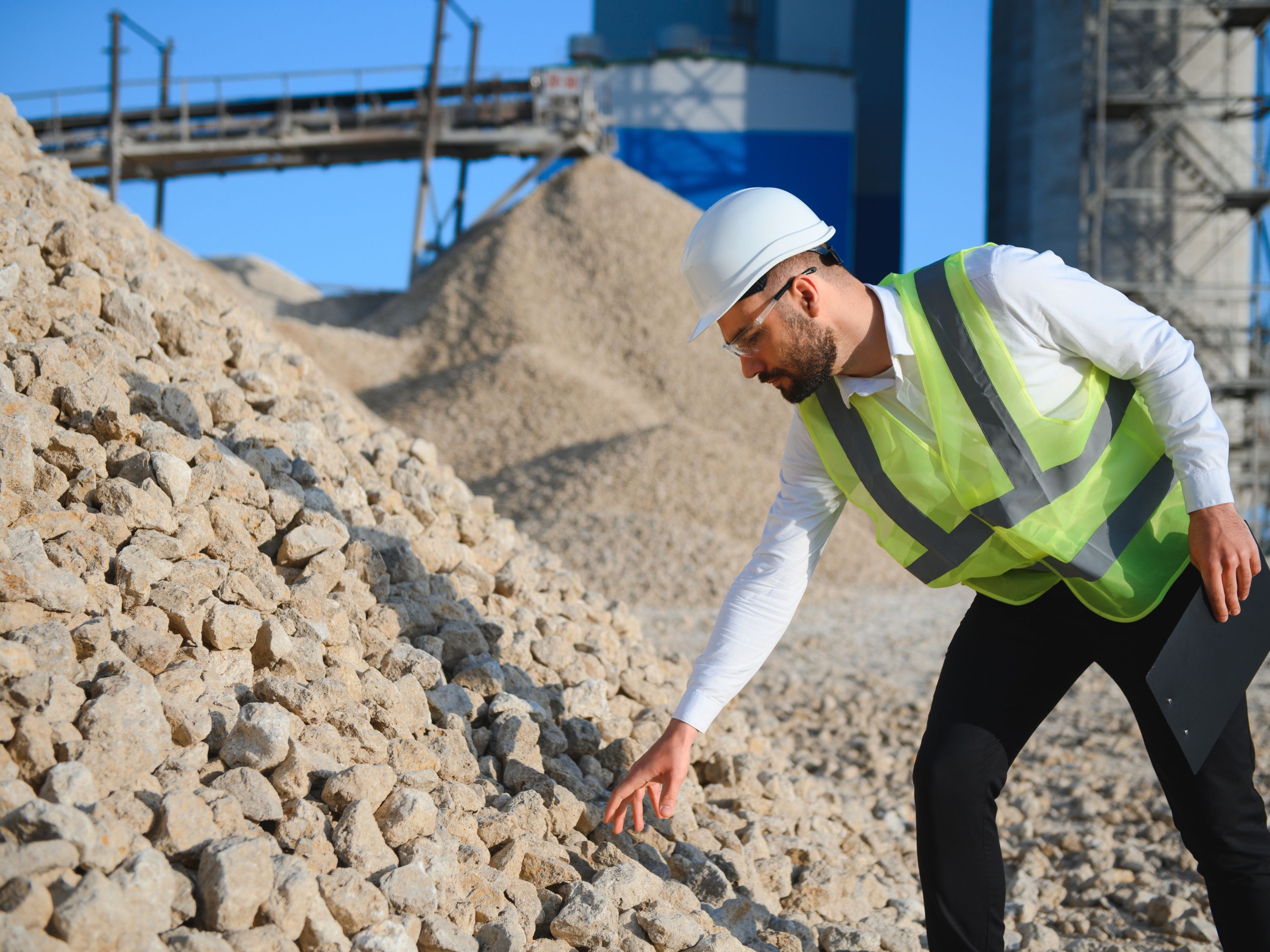
The materials you choose for your construction project can make all the difference—they’re a big part of what makes it a success or not. From ensuring structural integrity to achieving design goals, the materials selection process impacts everything—cost, durability, aesthetics, and sustainability. Learn the key factors to keep in mind when selecting materials for your construction project to be sure that it’s successful and seamless.
Here are the most common types of construction materials used for projects.
Concrete is one of the most durable materials, and is used for everything from foundations to high-rise buildings. It has great structural strength, but since its key ingredient is concrete, it’s a major source of greenhouse gas emissions which negatively impacts the environment.
Masonry materials like bricks and stones offer durability and fire resistance, and are often used because of their aesthetic appeal.
Due to dirt’s stability and load-bearing capacity, it’s a key component in building solid foundations.
Composites are materials made by combining two or more different substances, and are used often in construction due to their strength, durability, and being lightweight.

What construction materials you choose, will determine its durability and how long it will last based on the climate and location it’s being built in. For temporary structures, concerns like corrosion, moisture damage, and other forms of deterioration may not be as critical since the structure won’t be in place long enough to experience significant wear. With permanent durability is one of the most important things to consider. Choose materials that are built to last to ensure the structure remains safe and functional. For example, masonry and concrete are excellent for long-term durability, but are heavy and less flexible during construction. Composites on the other hand can last a long time, but may absorb moisture if improperly treated, reducing their durability.
When evaluating construction materials, cost is one of the biggest considerations since your budget dictates what type of materials you purchase.
High-quality materials like steel are great for durability, but they cost more. Likewise, sustainable or eco-friendly materials may incur higher initial costs but offer long-term savings. While budget is a factor, it’s also important to consider recurring costs like maintenance and replacement expenses. For example, concrete maintenance costs are low, but its upfront and environmental costs could be considerable if you’re looking to build something that’s sustainable. Evaluate these costs from a holistic perspective so you can make an informed choice that will fit within your budget.
One often overlooked factor that can significantly help with a construction project’s efficiency and sustainability is sourcing local materials. By choosing to work with materials produced or sourced close to your project site, you can reduce costs due to the high cost of transporting materials as well as making it a more sustainable option.
Sourcing locally has become easier through digital marketplaces specializing in bulk construction materials, making sustainable building more accessible to contractors.
Construction doesn’t stop once the structure is built—it continues through ongoing maintenance. Generally, higher-quality materials require less upkeep over time, while lower-cost alternatives often need frequent repairs and attention. Consider the long-term maintenance needs when choosing construction materials, whether that’s in the months immediately after completion or many years later. Investing more during construction often means saving more on maintenance in the long term.
Sustainability in construction has become increasingly important for contractors and other stakeholders due to growing environmental concerns and the industry's significant impact on the planet. Contractors need to consider sustainable practices for both environmental and economic reasons. Here's why sustainability is an important part of assessing the construction materials you use.
The construction industry is a major consumer of resources, contributing significantly to global resource depletion and greenhouse gas emissions. Which is why choosing sustainable construction materials can contribute to healthier and more livable communities by improving air and water quality.
Construction activities can lead to habitat destruction, water pollution, air pollution, and other negative environmental consequences.
Public awareness and concerns about environmental issues are rising, putting pressure on the construction industry to adopt more sustainable practices.
Sustainable construction practices can lead to lower operating costs and reduced waste.
Construction firms that prioritize sustainability are more likely to attract and retain skilled workers. “Surveys show Gen Z and Millennial candidates prefer working for and staying loyal to companies aligned with their environmental values, and even ask about sustainability commitments [early] in the hiring process.”
Based on the location and climate of the project, you need to consider both current conditions and what the weather is year-round. It’s important to understand how hot or cold the area gets throughout the year because temperature extremes can cause significant structural issues if not accounted for. Beyond temperature, you should also assess humidity levels, as environments that are too dry or too moist can affect the performance and durability of certain building materials.
Although aesthetics might not seem like a factor you need to consider when looking for construction material, it's important to think about how different materials will look together when designing the structure.
When considering what construction materials you’re going to use for a project, prioritize factors like local material availability, budget, durability, and sustainability. To streamline your project and improve efficiency, adopting a platform like Bulk Exchange will help you stay on schedule and find local suppliers near you.